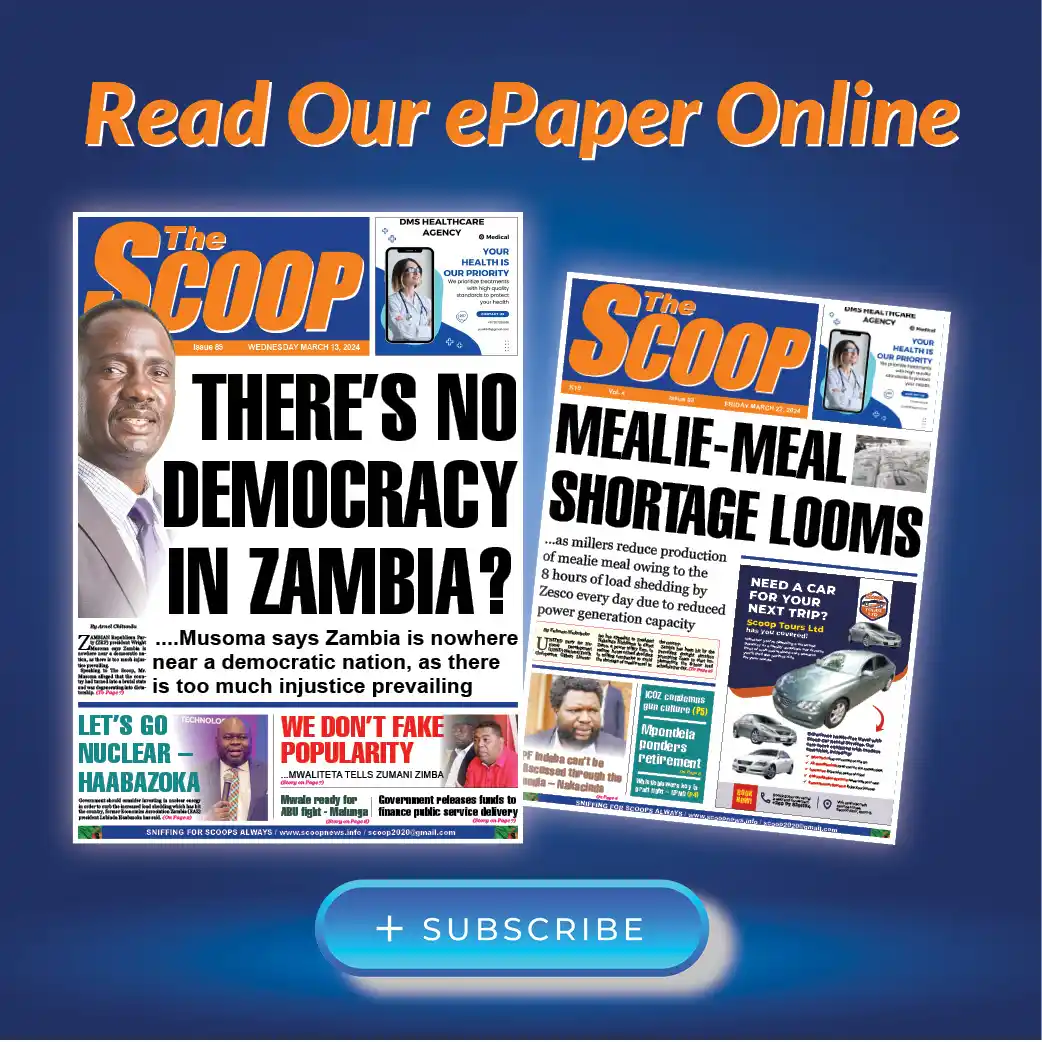IT is an undeniable fact that Zambia is going through challenging times in so far as the economy is concerned and this has been caused by a myriad of factors which, if they remain unresolved, will exacerbate our economic woes.
We all know where we are coming from and are witnesses to what has been happening in our country over the years and one of the biggest problems that have triggered the current situation is the unsustainable debt senselessly contracted by the previous regime which it not only failed to pay back, but also failed to restructure.
To the gullible, this already sounds like a blame-game but things must be put in perspective if we are to understand the dynamics that have caused some of the challenges we are facing today. We cannot run away from the fact that the Patriotic Front (PF) got us into this mess where the debt is concerned. We are today bleeding as a country due to its arrogance of not listening to anyone with divergent views even on serious national issues.
When Zambians advised the PF against senseless borrowing, they were adamant and did not want to listen. Today, the whole country is bleeding because of them. Yes, we have restructured our debt but this is not an overnight remedy because we still have to pay what we owe our creditors, anyway.
Zambia’s high levels of debt have had a significant impact on its economy in recent years. The country’s debt levels have risen rapidly, leading to concerns about its ability to repay its debts and meet its financial obligations.
The government has struggled to service its debt, leading to budget deficits and cuts in public spending on essential services such as healthcare and education. The high debt levels have also put pressure on the country’s currency, leading to depreciation and inflation.
This has made it more expensive for Zambia to import goods and services, further straining its economy. Furthermore, the high debt levels have limited the government’s ability to invest in infrastructure and other development projects, which are crucial for stimulating economic growth and creating jobs.
Overall, Zambia’s high levels of debt have had a negative impact on its economy, leading to financial instability, budget deficits, inflation, and limited investment in critical sectors. Addressing the debt issue will be crucial for the country to achieve sustainable economic growth and development.
While we are still reeling with the debt that has choked our country, the heavens have also betrayed us. The drought that has hit us has had a significant negative impact on the economy, particularly in the agricultural sector.
The drought has led to water scarcity, which has resulted in crop failure and reduced agricultural productivity. This has led to food shortage, higher food prices, and loss of income for farmers. The drought has exacerbated food insecurity in Zambia, as crop failures and reduced agricultural productivity have led to shortages of food and higher prices.
This has also not spared hydroelectric power generation because Zambia relies heavily on hydroelectric power for its energy needs. Therefore, the drought has led to lower water levels in rivers and dams, reducing the country’s ability to generate electricity.
Additionally, water shortages have impacted industries that rely on water for production, such as mining and manufacturing. Overall, the drought that has hit Zambia has had a significant negative impact on the economy, affecting agriculture, energy production, food security, and other sectors.
These challenges, however, must not be taken as an excuse in stabilising the economy and a lot is being done in the background to ensure that the economy of this country stabilises and we remain hopeful that despite the current economic uncertainty that has enveloped us, some of the mitigation measures being put in place will respond to addressing certain aspects of the economy in the short term while other benefits will take long to be realised or make an impact.
For example, the roping in of the Zambia National Service (ZNS) to produce mealie meal was aimed at stabilising the commodity price and if this had not been done, Zambians would have been paying through their noses.
Using the old strategy of giving maize to millers to produce at a reduced cost and then reduce the price on the market, the real beneficiaries would have been the millers themselves because they had proved to be exploitative especially in the wake of commodity crises.
It is good that the same maize that would be given to millers from the Food Reserve Agency (FRA) is now being sold to citizens at community level at a subsidised price. Had it not been for this shift in strategy, mealie meal prices would have been four to five times what is currently obtaining?
As he has promised to prioritize economic growth and development, President Hichilema has outlined plans to improve the business environment, attract foreign investment, and create jobs for the people of Zambia despite the current economic situation.
His background as a successful businessman and economist also gives hope that he will be able to steer the economy in the right direction. Additionally, Hichilema has expressed a commitment to tackling corruption and improving governance, which are crucial factors for economic growth and stability.
By addressing these issues and implementing sound economic policies, Hichilema has the potential to lead Zambia to a brighter economic future. Overall, there is optimism that under President Hichilema’s leadership, the Zambian economy will rebound and thrive, bringing prosperity and opportunities for its citizens.


























